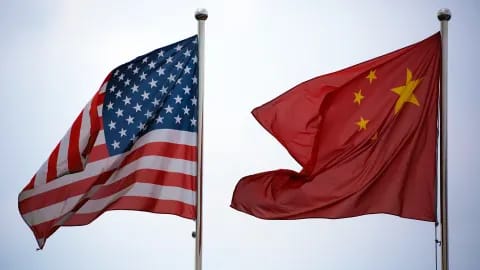The intricate fabric of global technology investments is undergoing a significant transformation due to the Biden administration’s latest move. By imposing stricter constraints on US investments in advanced technology sectors in China, a ripple effect is anticipated across innovation, trade, and diplomatic relations between the world’s two largest economies.
Shaping Cross-Border Economic Relations
In a pivotal departure from previous approaches, the Biden administration unveiled a comprehensive strategy to curb US investments in Chinese artificial intelligence, quantum computing, and semiconductor industries. These proposed regulations, currently undergoing a 45-day public comment period, are poised to transition into actionable rules next year. Of notable significance is the scope of these restrictions, encompassing not just mainland China but also investments in Hong Kong and Macao.
Investor Response and Startup Implications
One of Silicon Valley’s prominent venture capital firms, DCM, managing investments exceeding $4 billion, acknowledged that the new executive order would necessitate a fundamental reevaluation of investment strategies, particularly in the realm of artificial intelligence. While DCM does not presently invest in the affected sectors of chips or quantum computing, it underscores the importance of meticulous compliance. This sentiment is echoed by Race Capital, a key player in Silicon Valley, which highlights concerns about the order’s potential impact on the venture capital landscape and Chinese startups.
Multifaceted Ramifications for Innovation and Trade
The repercussions of these stringent measures extend beyond economic dimensions. They pose challenges to innovation, trade dynamics, and even the geopolitical landscape. The 80% decline in US venture capital investment in China over the past year underscores the mounting strain in US-China economic interactions. As the new rules potentially hinder cross-border trade, Chinese businesses may redirect their growth strategies domestically, altering the trajectory of global economic relations.
As the intricate tapestry of global tech investments reweaves itself, the Biden administration’s decision to tighten the reins on US investments in China’s advanced technology sectors ushers in an era of transformation. This decision’s influence stretches far beyond economic considerations, encompassing innovation, cross-border trade, and even the geopolitical balance. The world watches closely as the US and China recalibrate their economic engagement, potentially altering the course of global economic relations in the process.
















